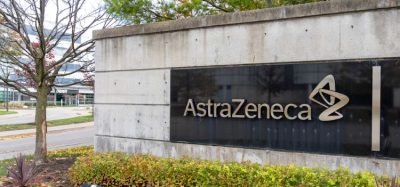Trial highlights potential next-gen biologic for lung cancer
Posted: 25 October 2024 | Catherine Eckford (European Pharmaceutical Review) | No comments yet
Preliminary results from an ongoing trial of a novel monoclonal antibody have confirmed favourable efficacy and safety in recurrent extensive-stage small cell lung cancer (SCLC).


New clinical data has shown a potential best-in-class next-generation antibody-drug conjugate (ADC) can offer promising response rates in extensive-stage small cell lung cancer. The biologic ZL-1310 is being investigated in an ongoing Phase Ia/Ib study in these patients who have had at least one platinum-based chemotherapy regimen.
Overall response rate was 74 percent in individuals with at least one post-treatment evaluation.
Zai Lab, the biopharmaceutical company that developed the biologic treatment, shared that all patients with baseline brain metastases who were response-evaluable obtained a partial response to the antibody-drug conjugate. The monoclonal antibody therapy was reported to be well tolerated, with most treatment emergent adverse events (TEAE) Grade 1 or 2, according to the findings.
Potential of ZL-1310 as a next-generation antibody-drug conjugate biologic
The clinical trial results demonstrate that the biologic “has the potential to deliver anti-tumour responses in the majority of patients with ES-SCLC, with good tolerability,” suggested Dr Alex Spira, a medical oncologist at Virginia Cancer Specialists and NEXT Oncology. “This is particularly encouraging given the urgent need for improved treatment options for these patients. These promising data support continued evaluation of ZL-1310 as a monotherapy in the dose-expansion phase of the ongoing Phase I clinical trial and in combination.”
the biologic has the potential to deliver anti-tumour responses in the majority of patients with ES-SCLC”
The ongoing Phase I trial is assessing the antibody-drug conjugate both as a single treatment and as a combination therapy together with the immune checkpoint inhibitor atezolizumab.
ZL-1310 is humanised anti-DLL3 monoclonal antibody with a topoisomerase 1 inhibitor payload. The compound was designed to address issues such as payload toxicity seen in first-generation ADC therapies, according to Zai Lab.
This initial data on ZL-1310 was presented this week at the EORTC-NCI-AACR (ENA) Symposium 2024.
Related topics
Biologics, Biopharmaceuticals, Clinical Development, Clinical Trials, Data Analysis, Drug Development, Drug Safety, Industry Insight, Research & Development (R&D), Therapeutics









